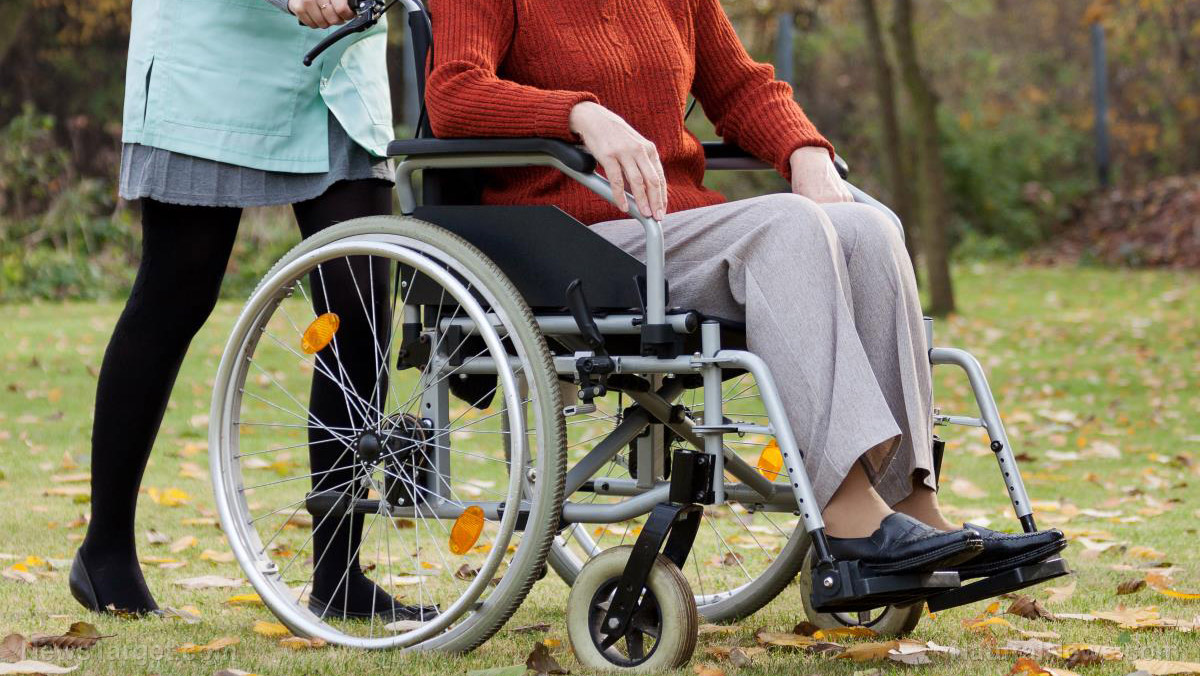Study: Regular exercise can help prevent cancer and reduce its spread
01/17/2025 / By Zoey Sky

- A groundbreaking study published in the British Journal of Sports Medicine reveals that regular physical activity significantly lowers the risk of cancer progression and spread.
- Participants were categorized by pre-diagnosis exercise levels. Those with low activity saw a 16 percent reduction in cancer progression risk, while moderate to high activity groups had even greater benefits, with 80 percent showing no disease progression two years post-diagnosis.
- Physical activity helps regulate hormones, reduce inflammation, boost the immune system and improve cardiovascular health, all of which contribute to cancer prevention and control.
- The study aligns with broader health guidelines, suggesting that up to 40 percent of cancer cases could be prevented through lifestyle changes like eating a balanced diet and maintaining a healthy weight.
- The study emphasizes that exercise is a cornerstone of overall well-being and a critical tool for improving quality of life, even for those already diagnosed with cancer.
In a groundbreaking study, researchers have uncovered compelling evidence that regular exercise not only helps prevent cancer but also significantly reduces the risk of its progression and spread.
The findings, published in the British Journal of Sports Medicine, highlight the critical role physical activity plays in cancer prevention and management, offering hope and actionable insights for individuals looking to safeguard their health. Conducted by researchers at the University of the Witwatersrand in Johannesburg, the study analyzed data from 28,248 individuals diagnosed with stage one cancers between 2007 and 2022.
The most common cancers studied were breast and prostate cancer. Participants’ activity levels were tracked using fitness devices, gym logs and their participation in organized fitness events.
Why exercise matters
The results revealed a clear link between physical activity and improved cancer outcomes. The study categorized participants based on their exercise levels in the 12 months prior to their cancer diagnosis:
- No physical activity: 62 percent of participants
- Low activity (less than 60 minutes per week): 13 percent
- Moderate to high activity (more than 60 minutes per week): 25 percent
The findings were striking. Compared to those who were inactive, individuals who engaged in low levels of exercise reduced their risk of cancer progression by 16 percent.
For those who maintained moderate to high activity levels, the risk dropped by an impressive 27 percent. Similarly, the odds of death from any cause were 33 percent lower for those with low activity levels and 47 percent lower for those with moderate to high activity levels.
Two years after diagnosis, the likelihood of no disease progression was 74 percent for inactive individuals, compared to 78 percent and 80 percent for those in the low and moderate-to-high activity groups, respectively.
While the risk of progression increased over time, it remained consistently lower for those who had been physically active before their diagnosis.
The study’s authors emphasized that physical activity offers substantial benefits not only for cancer prevention but also for mitigating the risk of cancer progression and improving overall survival rates.
The researchers also urged public health officials to promote exercise as a key component of cancer prevention and management strategies. (Related: Just 30 minutes of moderate to vigorous exercise can improve your memory the very next day.)
But how exactly does exercise work its magic?
While the exact mechanisms are still being studied, researchers believe that physical activity helps regulate hormones, reduce inflammation and boost the immune system – all of which play a role in cancer prevention and control.
Exercise also improves cardiovascular health, enhances mental well-being and supports healthy weight management, all of which contribute to overall health and resilience.
A blueprint for cancer prevention
The study’s findings align with broader cancer prevention recommendations from health experts, who estimate that up to 40 percent of cancer cases could be prevented through lifestyle changes.
These recommendations, backed by extensive research, provide a practical roadmap for reducing cancer risk:
Eat a balanced diet
Focus on whole grains, vegetables, fruits and legumes while limiting fast food, red and processed meats and sugary drinks.
Limit alcohol consumption
Even moderate drinking can increase cancer risk.
Maintain a healthy weight
Excess body fat is linked to an increased risk of several cancers.
Stay physically active
Aim for at least 150 minutes of moderate exercise or 75 minutes of vigorous exercise per week.
Avoid smoking and protect yourself from the sun
These are critical for reducing the risk of lung and skin cancers.
Importantly, these recommendations are not a checklist but a holistic approach to living well.
As the study’s authors noted, being active won’t cancel out the risks of unhealthy habits like excessive drinking or poor diet. Instead, adopting a balanced, health-conscious lifestyle is key to maximizing the benefits.
Beyond cancer: The broader benefits of exercise
The advantages of regular exercise extend far beyond cancer prevention.
Physical activity is a cornerstone of overall well-being, offering a host of benefits for both body and mind:
Improved mood and mental health
Exercise triggers the release of endorphins, often called “feel-good” hormones, which can reduce symptoms of depression and anxiety.
Increased energy levels
Exercise enhances cardiovascular health and lung function, making everyday activities feel less taxing.
Stronger muscles and bones
Weight-bearing exercises like running or resistance training help maintain bone density and muscle mass, reducing the risk of osteoporosis and injury as you age.
Reduced risk of chronic diseases
Aside from cancer, regular physical activity is a powerful tool for preventing a range of health conditions such as Type 2 diabetes to heart disease.
Weight management
Regular activity helps burn calories and maintain a healthy metabolism, reducing the risk of obesity-related diseases.
The message is clear: Regular exercise is one of the most effective ways to protect your health and reduce your risk of cancer. So, lace up your sneakers, find an activity you enjoy, and take that first step toward a healthier, more vibrant life.
Go to WomensFitnessFocus.com for more stories on the other benefits of exercising regularly.
Watch this clip with Health Ranger Mike Adams as he talks about the cancer industry and alternative healing with guest speakers at the “A.G.E.S Conference: Cleansing the Causes of Cancer stream.”
This video is from the Brighteon Highlights channel on Brighteon.com.
More related stories:
Study: Childhood inactivity and screen time linked to heart damage in young adults.
Reclaim your health: How midlife exercise reverses years of inactivity.
Muscles and immunity: How building muscle boosts your immune system.
Study: RUNNING boosts mental health and helps treat depression.
Prepper fitness: 10 Tips to kickstart your fall transformation.
Sources include:
Submit a correction >>
Tagged Under:
alternative medicine, anticancer, exercise, fitness, health science, Men's Fitness, natural cures, natural medicine, physical activity, remedies, research, Women's Fitness
This article may contain statements that reflect the opinion of the author





















